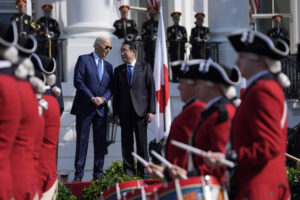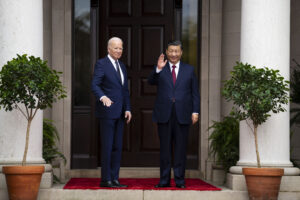Dream of a Global Climate Deal Is Over, Experts Say
The results of negotiations over the last decade have given observers virtually no reason to believe in a process that is counted by governing leaders as successful for simply surviving.
The results of negotiations over the last decade have given observers virtually no reason to believe in a process that is counted by governing leaders as successful for simply surviving.
Each year, when a binding treaty to reduce carbon emissions remains out of reach, top negotiators herald their efforts as “a success because a collapse of the arduous United Nations process was avoided,” as Hans-Joachim Schellnhuber, the long-serving climate adviser to the government in Berlin, said of this year’s talks in Doha, Qatar.
Those driving the science are fed up with such self-congratulation in the face of obvious failure. Top researchers are “demanding an end to the climate summit charade,” and instead asking smaller groups to do what they can to mitigate the effects of global warming in the regions they inhabit, writes Axel Bojanowski at Spiegel Online.
— Posted by Alexander Reed Kelly.
Your support matters…Spiegel Online:
The period characterized by “the UN’s clever management of expectations” is coming to an end, says Oliver Geden, a climate expert with the German Institute for International and Security Affairs in Berlin. “The expectation that the worsening problem would put pressure on the international community to find a solution has not been borne out — and isn’t likely to be.”
“The dream of a global deal is over,” agrees Frank Uekötter, an environmental historian at the Rachel Carson Center for Environment and Society. “An elimination (of the summit regime) would create space for new momentum.”
For many, such statements border on sacrilege, though. Environmentalists have had huge expectations of the UN climate negotiation process, believing for years that it would ultimately result in a global deal for the reduction of greenhouse gas emissions. It was, in short, to produce the holy grail of a more rigorous successor to the weak, largely non-binding Kyoto Protocol — one that would limit global warming to 2 degrees Celsius (3.6 degrees Fahrenheit).
Instead, the process, culminating annually in highly publicized summits that invariably end in disappointment, has only managed to produce a series of agreements to reach an agreement. “I have never understood how negotiations that don’t even work among 20 countries are supposed to work in the UN model with 194 countries participating,” Geden says. “The US and China aren’t going to be told what to do by Nauru or Tuvalu.” He adds that it would likely be more productive if leaders negotiated in smaller groups.
Independent journalism is under threat and overshadowed by heavily funded mainstream media.
You can help level the playing field. Become a member.
Your tax-deductible contribution keeps us digging beneath the headlines to give you thought-provoking, investigative reporting and analysis that unearths what's really happening- without compromise.
Give today to support our courageous, independent journalists.






You need to be a supporter to comment.
There are currently no responses to this article.
Be the first to respond.